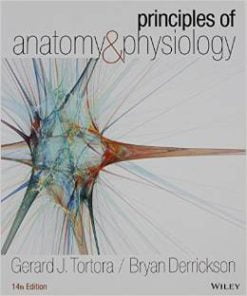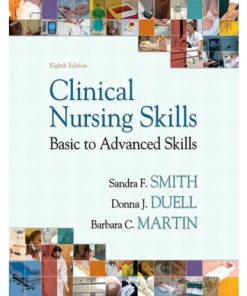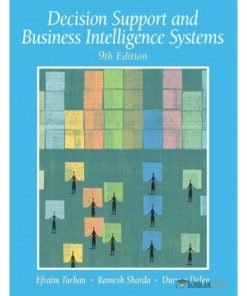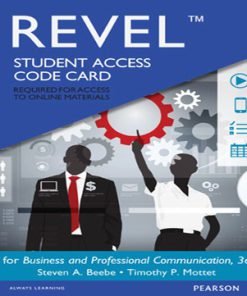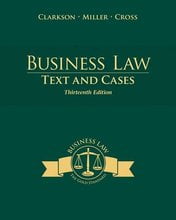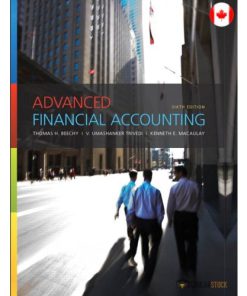Test Bank For Introduction to Educational Research Second Edition
$35.00 Original price was: $35.00.$26.50Current price is: $26.50.
Test Bank For Introduction to Educational Research Second Edition
This is completed downloadable of Test Bank For Introduction to Educational Research Second Edition
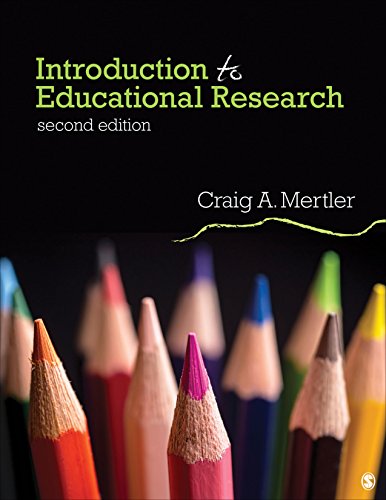
Product Details:
- ISBN-10 : 1506366120
- ISBN-13 : 978-1506366128
- Author: Craig A. Mertler
The new Second Edition of Introduction to Educational Research expertly guides readers through the steps of the research methods process to help them plan and compose their first educational research project. With a conversational writing style, author Craig A. Mertler covers all aspects of the research process and addresses a wide range of research methodologies, including: Quantitative, Qualitative, Mixed-Methods, and Action Research. No prior familiarity with the principles, procedures, or terminology of educational research is required, allowing novice students to clearly understand research concepts and learn to effectively apply them in their own studies.
Table of Content:
PrefaceAcknowledgmentsAbout the AuthorPART I. INITIAL RESEARCH CONSIDERATIONSChapter 1. What Is Educational Research? Finding Answers to Questions The Scientific Method Educational Research—What It Is and What It Is Not Educational Research as a Process Knowing Your Specific Discipline Educators as ResearchersChapter 2. Overview of the Educational Research Process Identifying and Limiting a Research Topic or Problem Formally Stating and Refining Research Question(s) Reviewing Existing Literature Related to the Problem Writing a Literature Review Developing a Research Plan Implementing the Research Plan and Collecting Data Analyzing the Data Stating Findings, Conclusions, and Recommendations in a Written Research Report The Educational Research Process—A Brief ExampleChapter 3. Identifying a Research Problem Identifying a Research Topic or Problem Necessary Terminology Related to Research Research Questions and HypothesesChapter 4. Ethics in Educational Research Ethical Considerations in the Conduct of Research Ethics in Qualitative Versus Quantitative Studies Institutional Review Boards Formal Preparation for Research with Human ParticipantsChapter 5. Reviewing Related Research Literature What Is a Literature Review? Sources for Literature Related to Your Research Topic Searching the ERIC Online Database Searching the Google Scholar Online Database Writing Your Literature Review Not Just for Conducting Research—Valuable Sources for Professional DevelopmentPART II. DESIGNING A RESEARCH STUDYChapter 6. Qualitative Research Methods Characteristics of Qualitative Research The Qualitative Research Process Approaches to Conducting Qualitative Research More About Ethnographic Research More About Narrative ResearchChapter 7. Quantitative Research Methods Characteristics of Quantitative Research The Quantitative Research Process Nonexperimental Research Designs Experimental Research Designs Threats to Validity in Quantitative DesignsChapter 8. Mixed-Methods Research Characteristics of Mixed-Methods Research The Mixed-Methods Research Process Approaches to Conducting Mixed-Methods Research Validity in Mixed-Methods Research Strengths and Limitations of Mixed-Methods ResearchChapter 9. Action Research Characteristics of Action Research The Action Research Process Action Planning and Reflection Validity in Action Research Strengths and Limitations of Action ResearchChapter 10. Writing a Research Proposal Purpose of a Research Proposal General Aspects of a Research Proposal Components of a Quantitative Research Proposal Components of a Qualitative Research Proposal Proposals for Action Research and Mixed-Methods StudiesPART III. COLLECTING AND ANALYZING DATAChapter 11. Qualitative Data Collection and Analysis Sampling Techniques in Qualitative Research Qualitative Data Collection Techniques Characteristics of Qualitative Data: Accuracy, Credibility, and Dependability Qualitative Data Analysis TechniquesChapter 12. Quantitative Data Collection Sampling Techniques in Quantitative Research Scales of Measurement Quantitative Data Collection Techniques Characteristics of Quantitative Data: Validity and ReliabilityChapter 13. Quantitative Data Analysis Quantitative Data Analysis TechniquesPART IV. THE RESEARCH REPORTChapter 14. Writing a Final Research Report Importance of the Audience General Guidelines for Writing a Research Report Practical Guidelines for Writing An Example of a Research ReportAppendix: Teachers’ Perceptions of the Influence of No Child Left Behind on Classroom PracticesGlossaryReferencesIndex
People Also Search:
introduction to educational research second edition
introduction to educational research 2nd edition pdf
introduction to educational research 2nd edition pdf free download
introduction to educational research 2nd edition ebook
Related products
Test Bank
Test Bank for Decision Support and Business Intelligence Systems, 9th Edition: Efraim Turban




